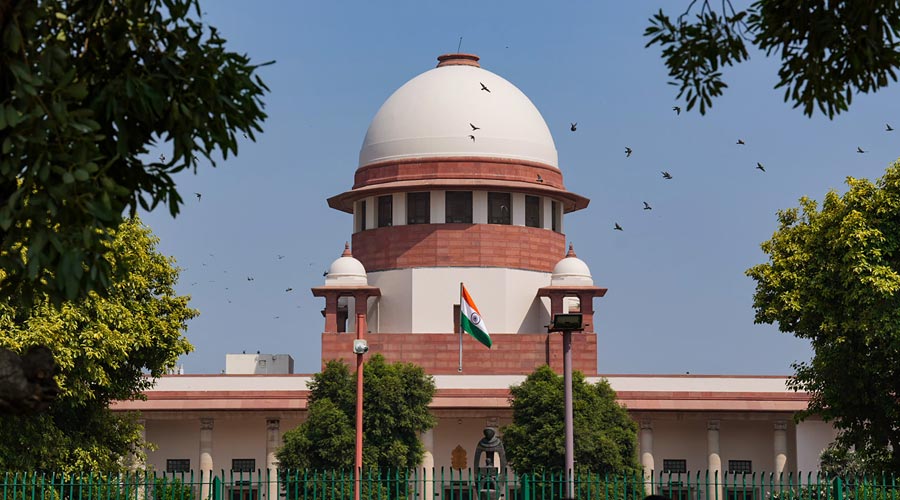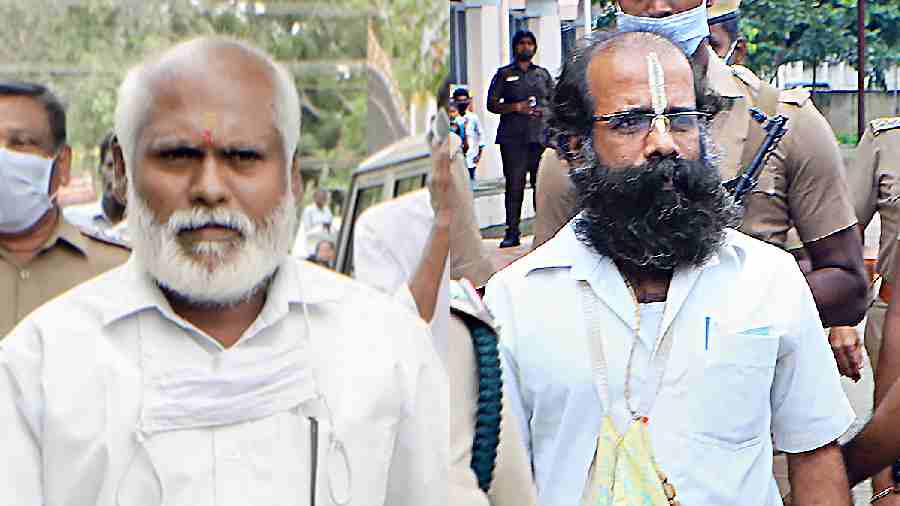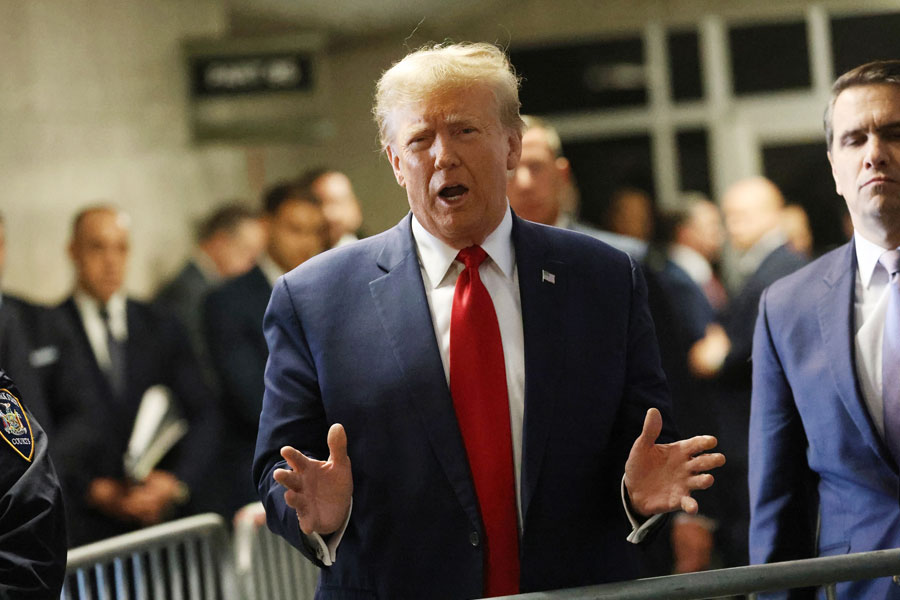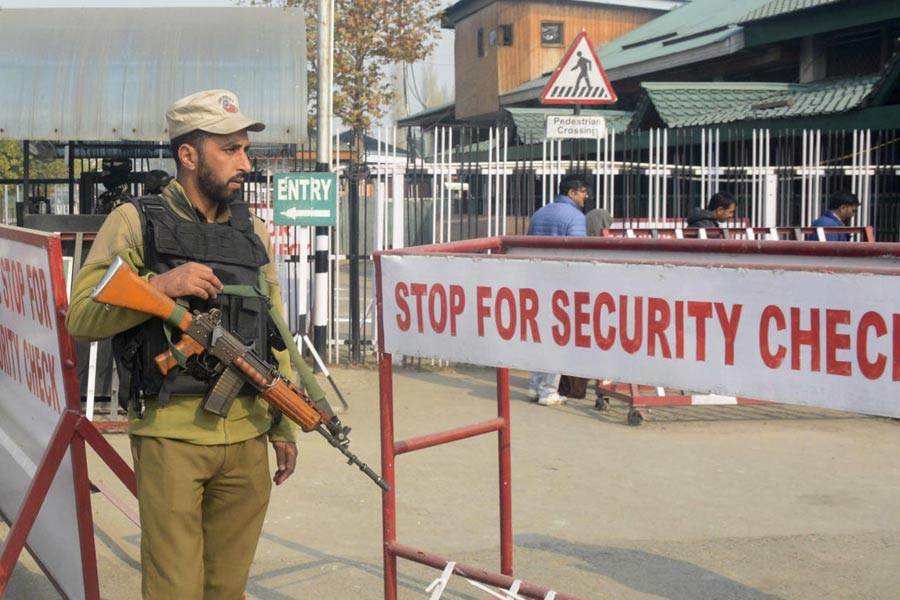The Supreme Court on Friday chided the Centre for failing to clear the appointments of several judges despite the collegium reiterating their names, but stopped short of issuing a contempt notice “just yet”.
Reiteration of a recommendation makes it mandatory for the government to give its approval under the memorandum of procedure (MoP) that guides appointments and transfers in the higher judiciary, the court stressed.
A bench headed by the second senior-most judge and collegium member, Justice Sanjay Kishan Kaul, while expressing displeasure at the Centre’s conduct, said it was, for the time being, “resisting in issuing contempt notice and issues simple notice on contempt petition filed against law ministry”.
The apex court’s rebuke comes days after Union law minister Kiren Rijiju alleged publicly that the collegium’s functioning was “opaque” and involved “intense politics” among the judges, and advocated a system of judicial appointments where the government would have a bigger say.
Among judges whose appointments have been delayed is Bombay High Court chief justice Dipankar Datta, who was recommended for elevation to the Supreme Court on September 27.
In some instances, the recommendations were made more than three years ago and the reiterations more than a year back. The apex court underlined that some advocates recommended for elevation as high court judges had withdrawn their consent, tired of waiting indefinitely.
The bench also cited the instance of advocate Jaytosh Majumdar who was recommended for appointment as a Calcutta High Court judge in July 2019, with a reiteration in September 2021, but died last month without his name being cleared by the Centre.
“Keeping names on hold is not acceptable. It is becoming some sort of device to compel these persons to withdraw their consent as has happened,” the bench, which included Justice A.S. Oka, observed while issuing a notice to the Union law secretary seeking a response.
The court said: “There are 11 cases pending with the government which were cleared by the collegium but are yet awaiting appointments.”
The bench added: “This court notes that such an approach on the part of the Union of India implies that the government neither appoints the names nor communicates its reservations, if any.”
The court was hearing a contempt petition moved by the Advocates Association of Bengaluru against the government for sitting on the recommendations and reiterations.
Senior advocate Vikas Singh, representing the Supreme Court Bar Association which he heads and which has supported the petition, said Justice Datta’s appointment should have been approved within a few days, but had been kept hanging for six weeks now. To this, Justice Kaul said: “We do not plan to issue contempt just yet. I need to put my thoughts on this first.”
Justice Kaul said the Centre’s failure to issue appointment orders even after reiterations was prompting several candidates to withdraw, costing the higher courts the opportunity to have these eminent people on the bench. The bench referred to senior advocate Aditya Sondhi, who had been recommended for appointment as a Karnataka High Court judge in May, with a reiteration in September 2021. Sondhi has withdrawn his consent.
“Needless to say, that, unless the bench is adorned by competent judges, the very process of law and justice suffers.… Mr Vikas Singh states that even an appointment to the Supreme Court has been kept pending for over a month: we are unable to understand the reasons for the delay,” Justice Kaul said while dictating the order.
He added: “It has been my endeavour, though largely unsuccessful, to convince people from the Bar to give their consent for elevation.” The bench underlined how the court had in PLR Projects Limited vs Mahanadi Coalfields Private Limited (2021) fixed a broad timeline for the collegium and the government to complete judicial appointment and transfer processes. It said the collegium was therefore beginning the processes six months in advance of the vacancies.
“The time period of sending names six months in advance was conceived on a principle that the same time period would be enough. It appears that the directions are being breached on many occasions,” the bench said.











